- Preview
- Exercise: Ashok Ate a Frog
- How do we make sense of a sentence?
- Complex Frame Systems
- Properties of Frames
- Exercise: Interpeting a Frame System
- Frames and Semantic Nets
- Frames and Production Systems
- Exercise: Frames & Complex Un
Preview
- Frames are the first step of commen sense reasoning
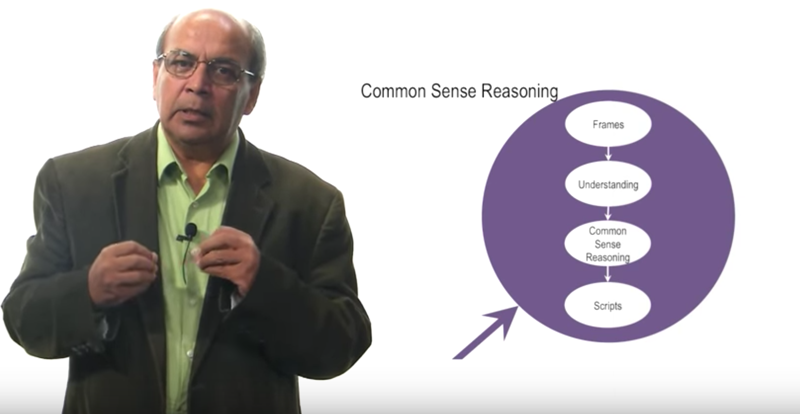
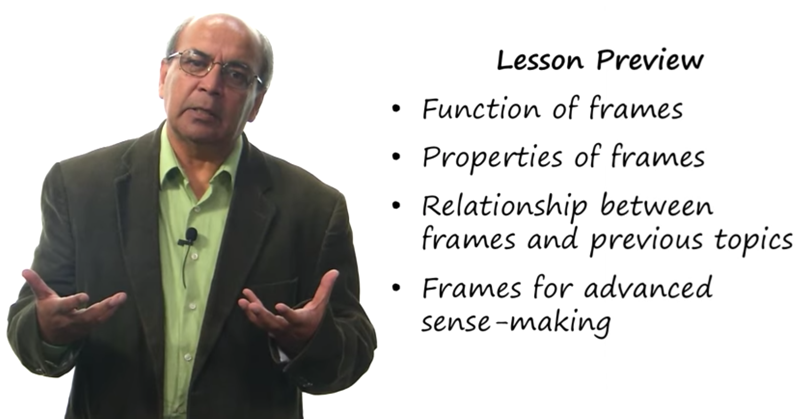
Exercise: Ashok Ate a Frog
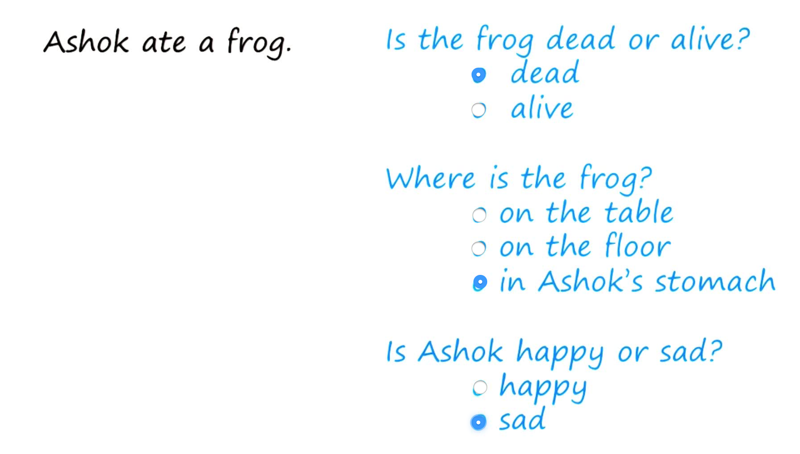
From the statement, there is no mentioning of the questions on the left. But human beings can answer the questions with some common sense knowledge and reasoning.
How do we make sense of a sentence?
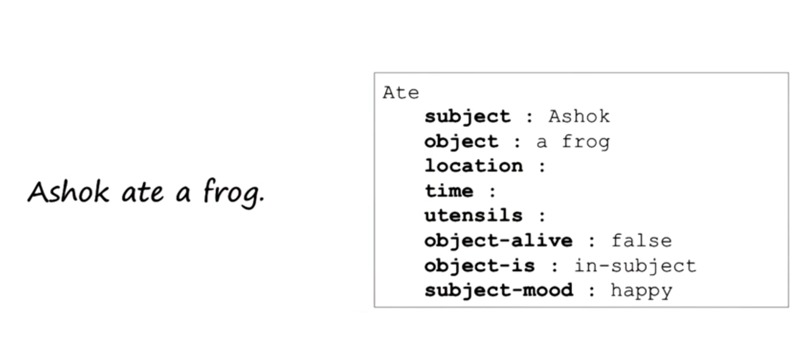
- Above is a semantic representation of the sentence “Ashok ate a frog”. It can be represented by the action “Ate” with a list of attributes. The attributes are pairs of slots and fillers.
- Some slots have default value (e.g. the filler of the slot Object-alive is false, because once the object is eaten, it should be dead), or it can be extracted from the sentence (e.g., the subject of the action “ate” is Ashok, which is from the sentence.
- A frame is a knowledge structure with slots and fillers to fill the slots. Frame stores stereotypical situation.
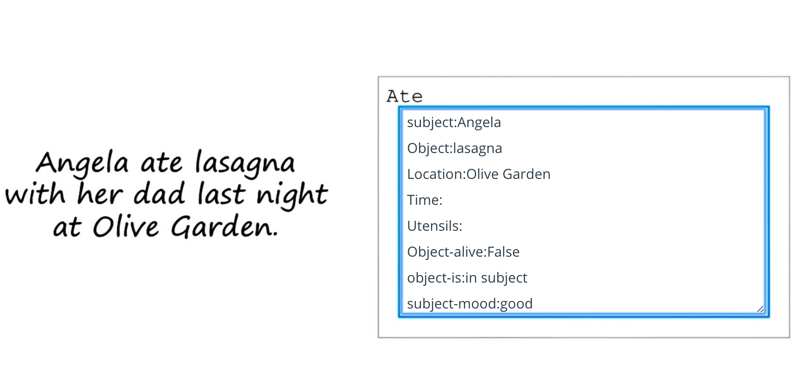
Reflection of the exercise:
- Frames are rigid, sometimes could not represent the new situation (e.g., now slot to put “dad” in the frame)
- Common sense is likely to be the default values of the frames
Complex Frame Systems
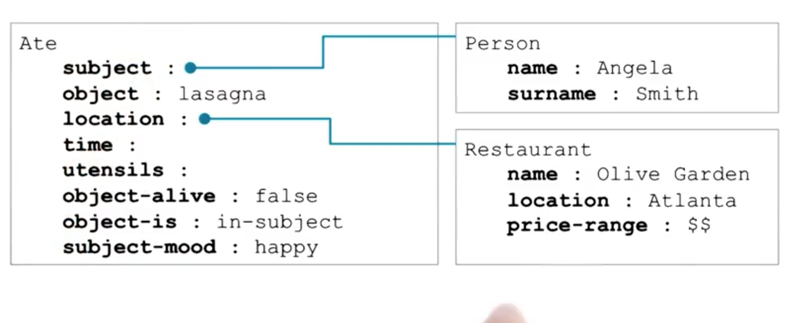
- Frame can represent verb and nouns
- Frames can be connected so that some frames can be the filler of other frames.
- frames are used for sentence level of understanding here. But with the two property above, Frames can be used to represent and understand group of sentences by connecting Frames together.
Properties of Frames
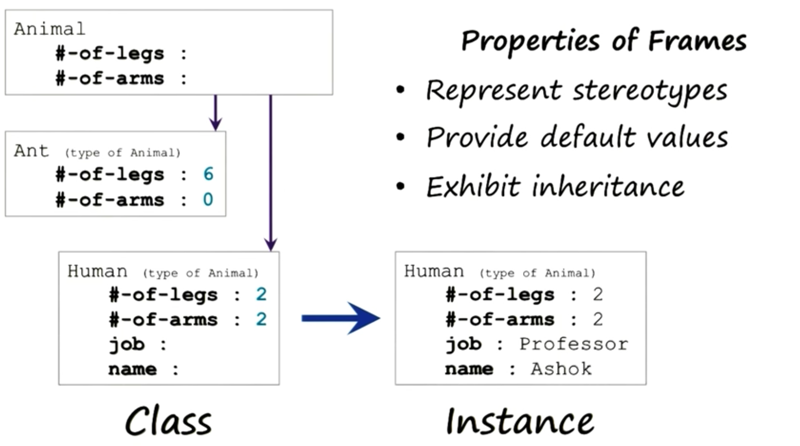
- The way that Class and instance works is very much like the objects in the object-oriented programming.
Exercise: Interpeting a Frame System
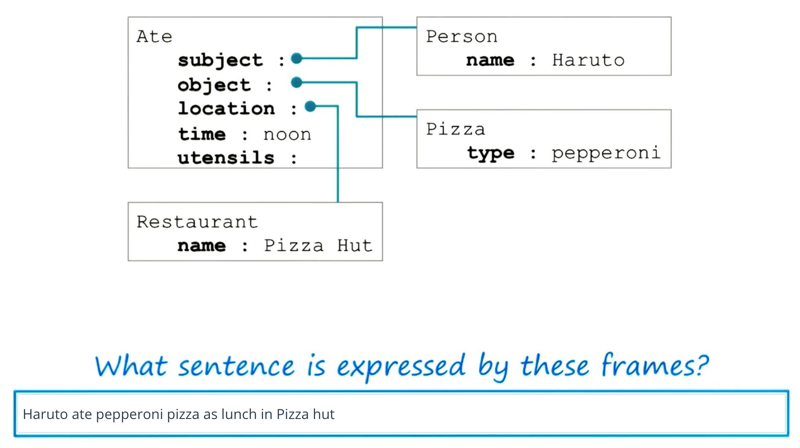
Frames and Semantic Nets
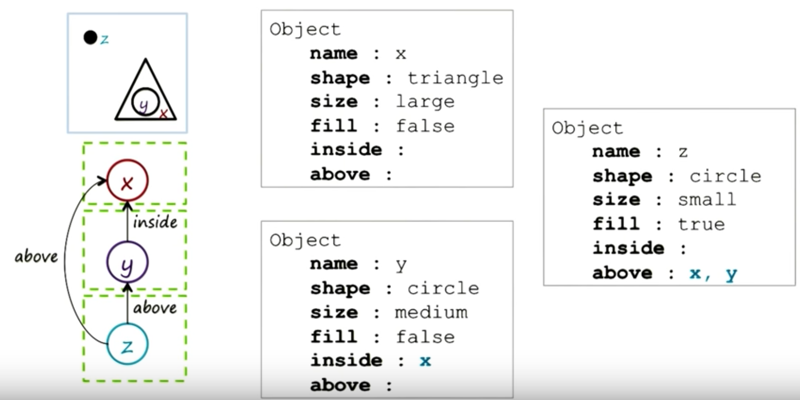
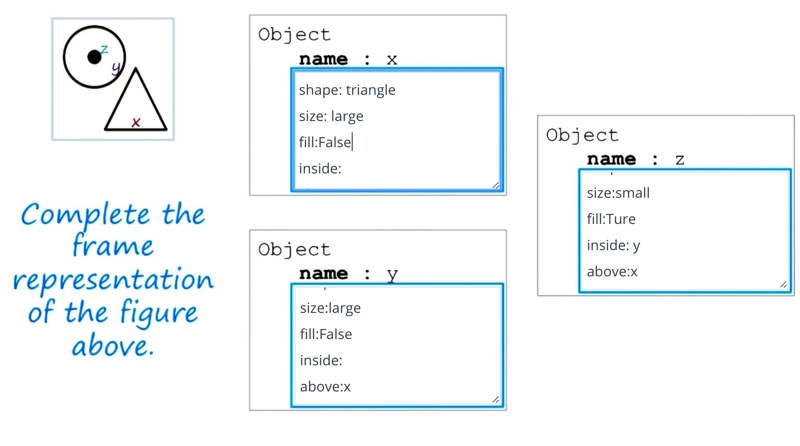
Frames and Production Systems
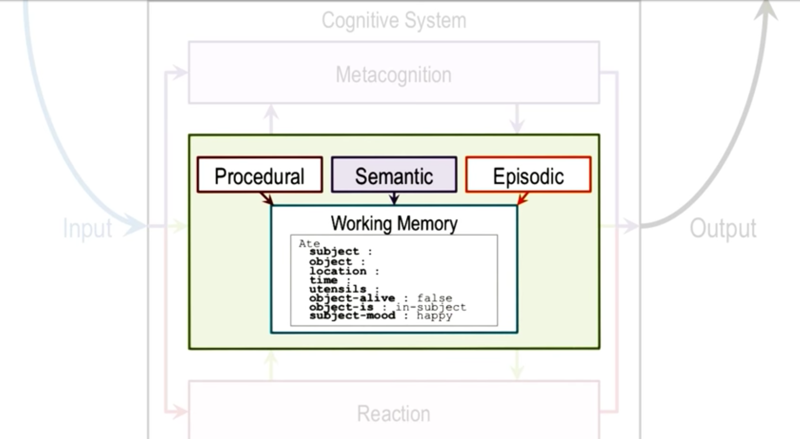
Exercise: Frames & Complex Un
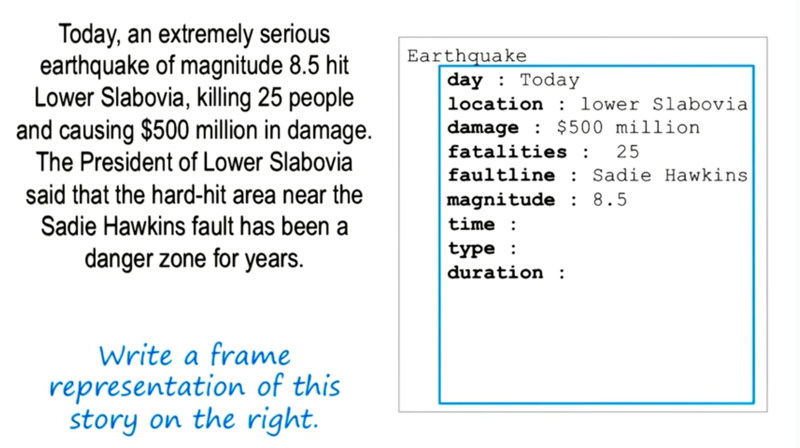
Assignment
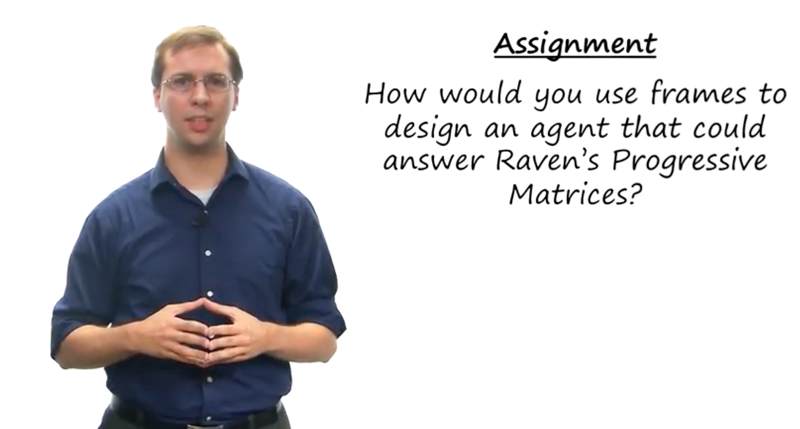
For this assignment, discuss how you’d use frames to represent Raven’s Progressive Matrices. At a basic level, what are the slots and llers associated with different Raven’s problems? Where are these frames going to comefrom? Is the agent going to receive the problem in terms of frames initially, or it going to generate these frames based on its own reasoning? Once it has these frames, what exactly are the reasoning methods it’s going to use to solve the problem But what about a frame representing the problem, as a whole? What about a frame representing individual shapes within g-ures? How would representing the problems at that di erent level of abstraction, help the agents solve the problem more easily. What are frames going to enable us to do, that we couldn’t do otherwise?
recap
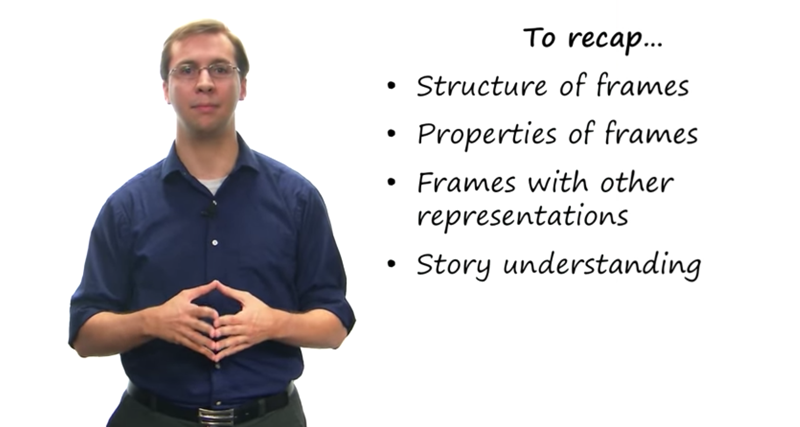
##
Frames are structures of knowledge representation (molecules in stead of atoms).
Top down and bottom up reasoning?
Frames provide knowledge representation of stereotypes, which facilitate cognition efficiency ( by the use of default values).
20170214 first draft